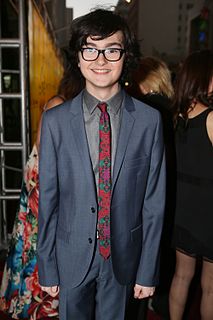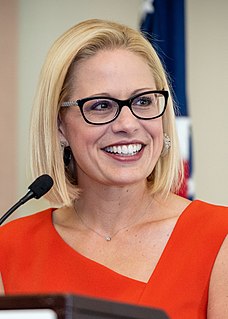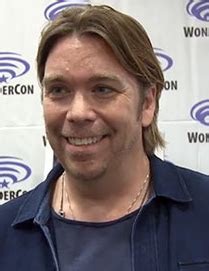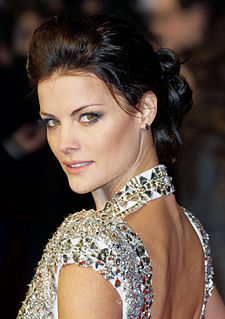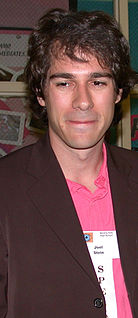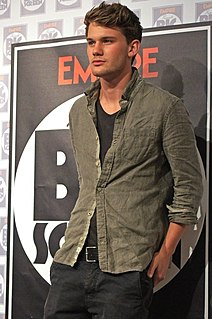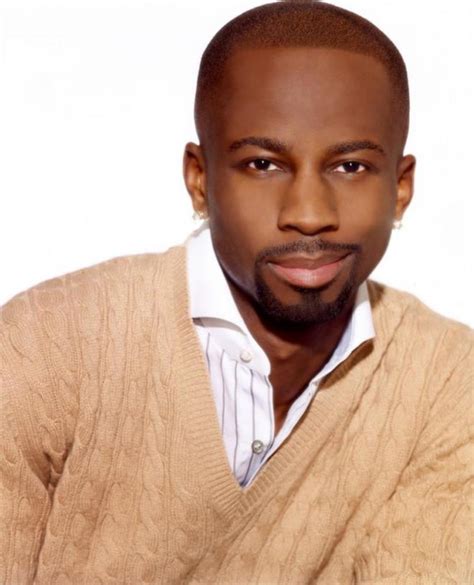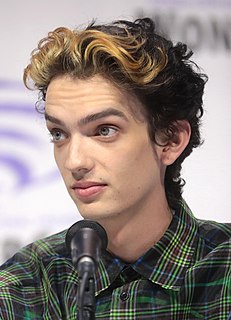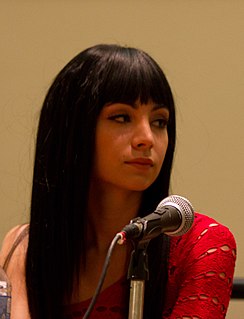A Quote by Len Wiseman
I really thought the process and what I'm used to doing on film would be different. I thought that because I wouldn't have the same amount of time, I wouldn't do all of the tracks that I like to do or the lighting that it takes. And then, I got there and realized that I don't know any other way. I just do all that stuff really, really fast and under a lot of stress.
Related Quotes
I got a manager, and I thought, since I was going out on auditions, I should do this for a living. Then there was this moment on set when I realized I was having a lot of fun, and I really wanted to do this forever. I want to do different stuff, but I want it all to be just as good as this film. I want to be consistent.
I remember I was really into this British band, The Vapors, with that song "Turning Japanese." I thought that they were really next level genius cryptic weirdos. And then I realized when I got older they are just using a lot of British words, and I didn't know what they meant. But I thought, Oh, they are making up their own language.
Dialogue is really aimed at going into the whole thought process and changing the way the thought process occurs collectively. We haven't really paid much attention to thought as a process. We have engaged in thoughts, put we have only paid attention to the content, not to the process. Why does thought require attention? Everything requires attention, really. If we ran machines without paying attention to them, they would break down. Our thought, too, is a process, and it requires attention, otherwise its going to go wrong.
Green screen, you know, it's been interesting, it's my first time to ever work with green screen technology, and it's, sometimes it can be really boring because you're like wow, I've got to really imagine all of this stuff around me. But it's low maintenance, which is nice, um, and it's not as hard as I thought it would be, so.
African films should be thought of as offering as many different points of view as the film of any other different continent. Nobody would say that French film is all European film, or Italian film is all European film. And in the same way that those places have different filmmakers that speak to different issues, all the countries in Africa have that too.
The Railway Man was a particularly intense and immersive experience. I definitely got carried away. I lost about 35 pounds. I really was incredibly skinny and also quite unwell while we were filming. It wasn't very healthy. I don't recommend it. But then also doing the torture scenes, the water boarding stuff, there wasn't really any other way just to do it really.
I felt like Twitter was more of a place for people to just socialize instead of promoting. After I got off, I realized I could have used that energy and that lane to really promote some positivity. I had 35,000 followers before I left. I was like, "Damn those were 30,000 consumers." It kind of twisted my whole thought process so I got back on. I realized that I have a voice that people wanted to hear.
OCD, we discovered is a lot of different things-it's not just washing your hands, it's whatever you're obsessed with. It can be just the way you hold a pen, and you always have to have it a certain way or you have to eat your food, it depends. It's something that, as a character I thought was really interesting because sometimes it's used in a film where it is OCD and sometimes it's strategic.
I'm not really sure if I have anything that inspires me. I think what goes into my work is everything beforehand that I do with my dad. He teaches me acting, and I think maybe without him it would be pretty hard. I started acting for fun, really, because my dad's an actor and my sister's an actor, so I started doing it and it was normal. But it got places really fast, and I started doing feature film auditions and stuff.
I really love action. I really love doing my own stunts. I would love to do more of that. I've done a lot of TV, but my heart is really in film. I really look forward to the film possibilities. I would love to dance in a movie again. I love all those creative aspects, like playing an instrument or dancing. I look forward to all that stuff, in future roles.

